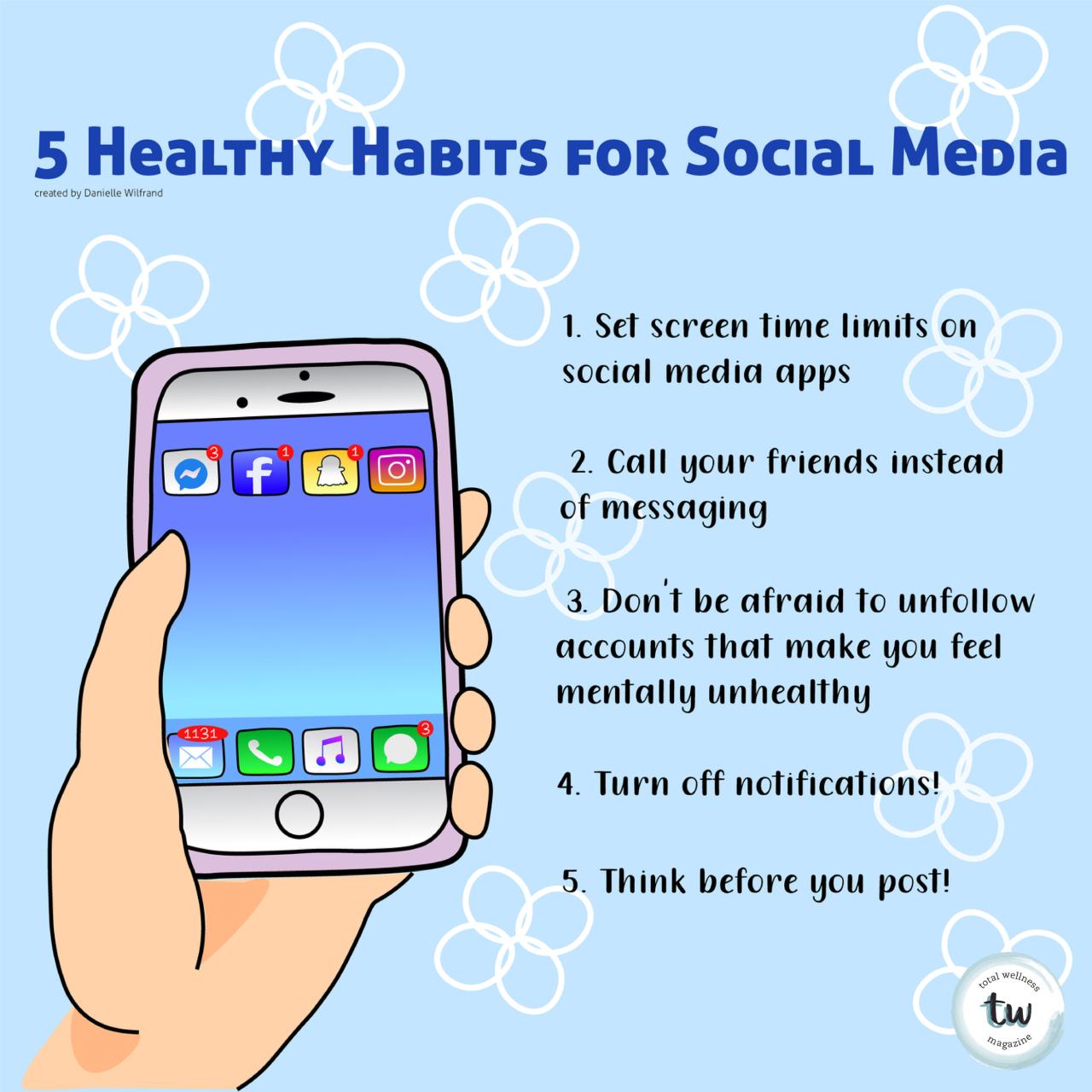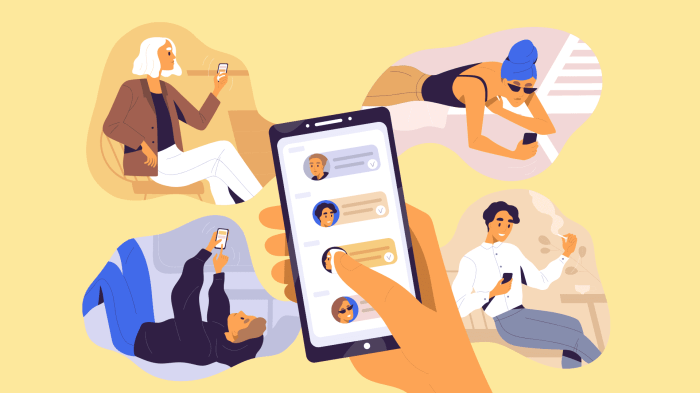Social media habits are more than just scrolling through feeds – they shape our behaviors, relationships, and well-being. Dive into the world of social media habits with a fresh perspective that uncovers the positive and negative impacts on our daily routines.
Social Media Habits Overview
Social media habits refer to the behaviors and routines individuals engage in while using social media platforms. These habits have a significant impact on daily life, influencing how people communicate, consume information, and interact with others in both personal and professional settings.
Types of Social Media Habits
- Scrolling Addiction: Constantly scrolling through social media feeds without a specific purpose, often leading to time wastage.
- Posting Obsession: Feeling the need to constantly update social media with personal photos, thoughts, or activities.
- Notification Dependency: Being overly reliant on notifications and alerts from social media apps for validation and connection.
- Comparison Syndrome: Regularly comparing one’s life to others’ curated social media posts, leading to feelings of inadequacy or envy.
Statistics on Social Media Usage
According to recent studies, the average person spends approximately 2-3 hours per day on social media platforms globally. This amounts to over 5 years of their life spent scrolling, liking, and sharing content on social media.
Positive Social Media Habits

Maintaining healthy social media habits can have numerous benefits for individuals. It can lead to improved mental health, better relationships, increased productivity, and overall well-being. By practicing positive social media habits, individuals can create a more positive online environment for themselves and others.
Limiting Screen Time
- Avoid spending excessive time on social media platforms to prevent feelings of comparison, FOMO, and anxiety.
- Set specific time limits for social media usage to ensure a healthy balance with real-life activities.
- Engage in offline hobbies and activities to reduce screen time and promote overall well-being.
Engaging Positively
- Share uplifting and inspiring content to spread positivity and encouragement within your social media community.
- Engage in meaningful conversations and discussions that contribute positively to the online space.
- Support friends and followers by liking, commenting, and sharing their posts to foster a sense of connection and community.
Practicing Digital Detox
- Take regular breaks from social media to recharge and refocus on real-life interactions and activities.
- Unfollow accounts that do not align with your values or make you feel negative emotions.
- Use social media mindfully and intentionally, rather than mindlessly scrolling through feeds.
Enhancing Relationships
- Use social media to stay connected with loved ones, especially those who are far away.
- Share important life updates and milestones with friends and family to maintain strong relationships.
- Express support and empathy towards others through private messages or comments to show you care.
Negative Social Media Habits

When it comes to social media, not all habits are positive. In fact, some habits can have detrimental effects on our mental health and overall well-being. It’s important to be aware of these negative habits and take steps to break free from them.
Constant Comparison
One common negative social media habit is constantly comparing ourselves to others. This can lead to feelings of inadequacy, jealousy, and low self-esteem. It’s important to remember that people only post the highlights of their lives on social media, and what we see isn’t always the full picture.
Excessive Screen Time
Spending too much time on social media can have negative effects on our mental health. It can lead to feelings of isolation, anxiety, and even depression. It’s important to set limits on our screen time and take breaks from social media to focus on real-life interactions.
Cyberbullying
Cyberbullying is another negative social media habit that can have serious consequences. Bullying others online or being a victim of cyberbullying can lead to emotional distress, anxiety, and even thoughts of self-harm. It’s important to report any instances of cyberbullying and seek help if needed.
Unhealthy Comparison, Social media habits
Engaging in unhealthy behaviors such as stalking ex-partners or obsessively checking the social media profiles of others can be damaging to our mental health. It’s important to focus on ourselves and our own well-being, rather than constantly comparing ourselves to others.
Impact of Social Media Habits on Productivity
Social media habits can have a significant impact on productivity, whether at work or in daily tasks. Constantly checking social media platforms, scrolling through feeds, and engaging in online conversations can lead to distractions and decreased focus, ultimately affecting efficiency and performance.
Tips for Managing Social Media Use
- Acknowledge the problem: Recognize when social media is becoming a distraction and be honest with yourself about the time you spend on these platforms.
- Set boundaries: Establish specific times during the day when you allow yourself to check social media, and limit the overall time spent on these platforms.
- Use productivity tools: Consider using apps or browser extensions that block access to social media sites during work hours to help you stay focused.
- Practice mindfulness: Be present in the moment and mindful of your actions, avoiding the urge to mindlessly scroll through social media feeds.
- Prioritize tasks: Create a to-do list or schedule for the day, focusing on important tasks first before allowing yourself to engage in social media.
Relationship between Social Media Habits and Procrastination
Social media habits can often contribute to procrastination as individuals may use these platforms as a way to avoid tasks or responsibilities. The instant gratification and constant stimulation provided by social media can make it difficult to concentrate on important work, leading to delays in completing projects or assignments. By recognizing the connection between social media use and procrastination, individuals can take steps to limit their online activity and improve their productivity.
